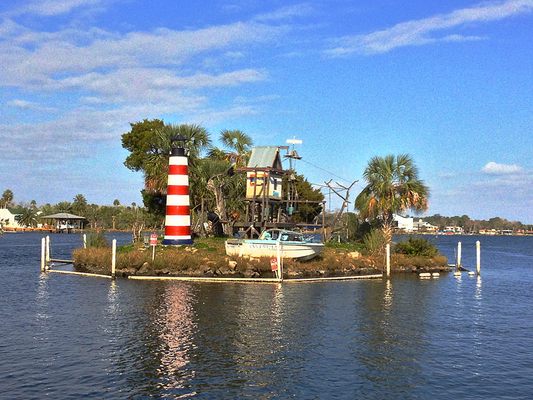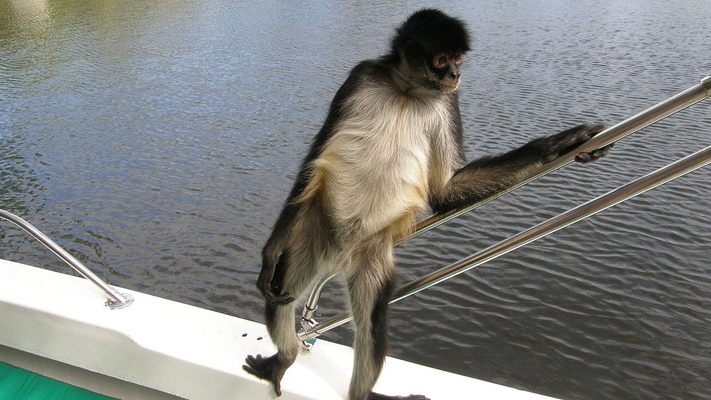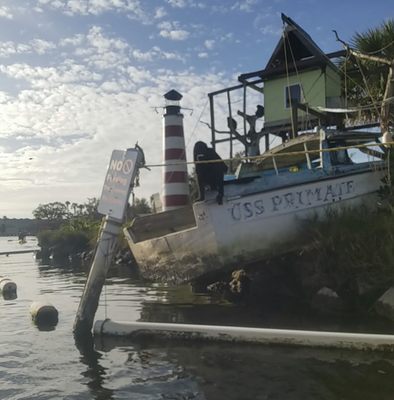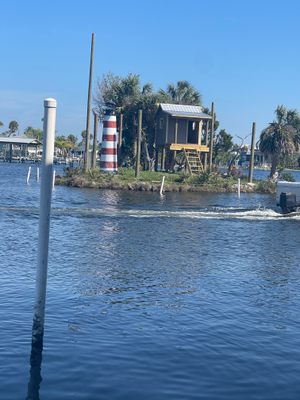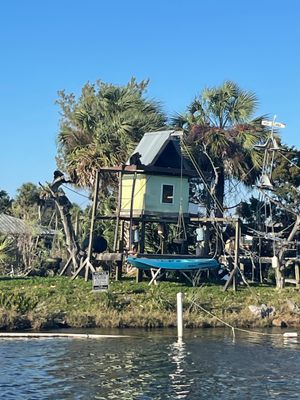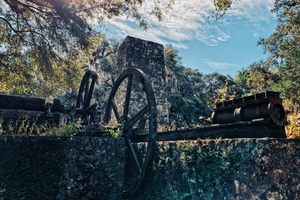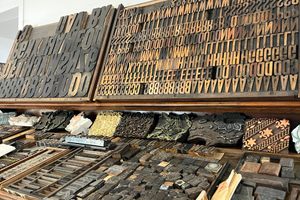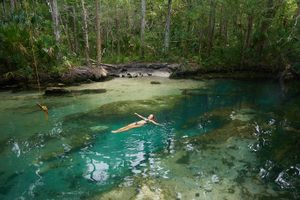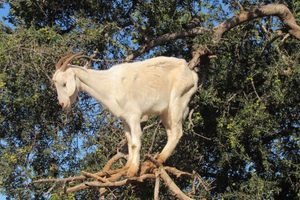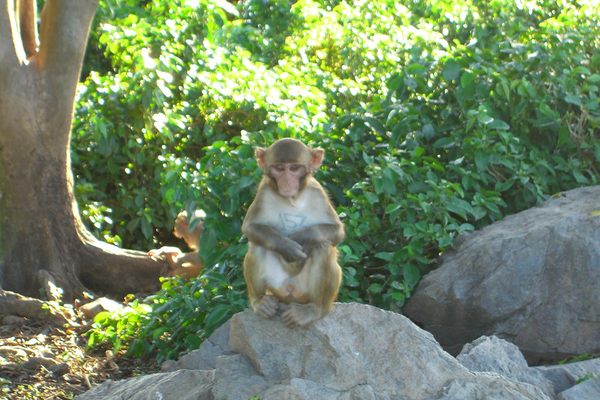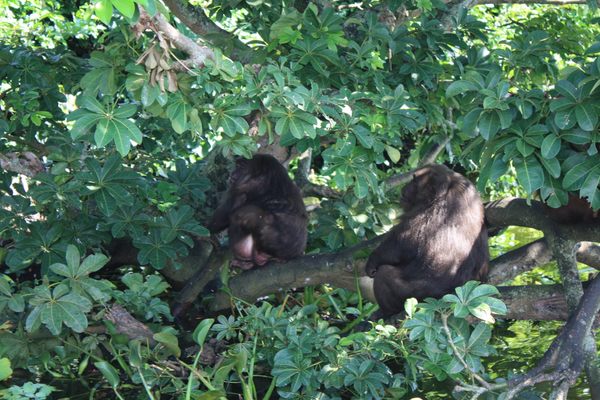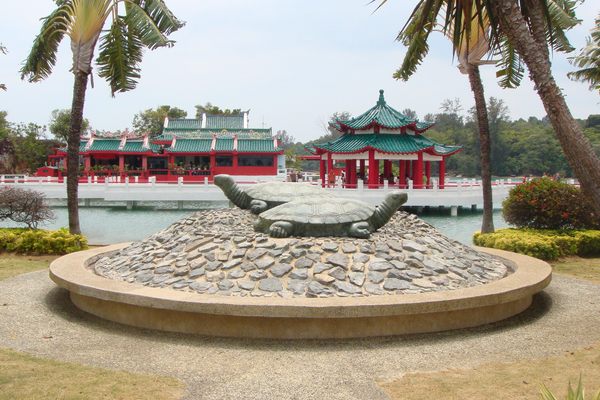About
What is now a much-loved attraction called Monkey Island was once a little more like a monkey detention center.
The island itself wasn't always an island. It started out as an easily-missed rock outcropping that took out the bottom of boats on a fairly regular basis. A developer named G.A. “Furgy” Furgason finally decided to take action, and instructed crew members busy at a nearby location to "throw some dirt" on the rock pile to keep boaters from bottoming out. The crew were a little over-enthusiastic, and when Furgason returned from a business trip in Africa, where a small, hardly noticeable outcropping used to be there was now what could only be described as a small island. Always the optimist, the developer threw a lighthouse and a few trees onto the new island and went back to more pressing business, primarily the new wildlife attraction (now Homosassa Wildlife State Park) he was building a little way up the stream. The attraction was to include all sorts of exotic plants and wild animals, including a small group of monkeys brought into the country by polio researcher Dr. John Hamlet. Their use as research animals exhausted, they were to retire to the wildlife park as attractions.
It's fairly common knowledge that monkeys and their hijinks can be amusing, but they are clearly also a giant pain in the ass—and these particular monkeys were exceptional escape artists and a special sort of obnoxious. After several run-ins with tourists that included swiping candy from children, breaking into cars, and taking bites out of trusting, food offering hands, Furgy was up to his ears in monkey business and repeatedly stated he wished he could send the little hooligans to Alcatraz. Then, it dawned on him. He had a monkey-sized Alcatraz right there in his grasp-the tiny island with the wee little lighthouse, the perfect getaway for the monkeys to live in peace, observed by visitors who could enjoy them without becoming victims of their mischief. The three spider monkeys and two squirrel monkeys were shipped off to their new monkey jail, which of course then earned a name and became an official plot of land—Monkey Island.
After some trial and error, (trees originally planted had to be replaced with some that were a little less delicious to the monkeys, huts built to act as homes needed to be rebuilt a little more durable) peace between man and beast finally settled across Homosassa, and 40 years later, the surviving monkeys (and some new additions!) still live and play freely on the island while delighted tourists observe from a safe distance.
Related Tags
Community Contributors
Added By
Published
June 9, 2013
